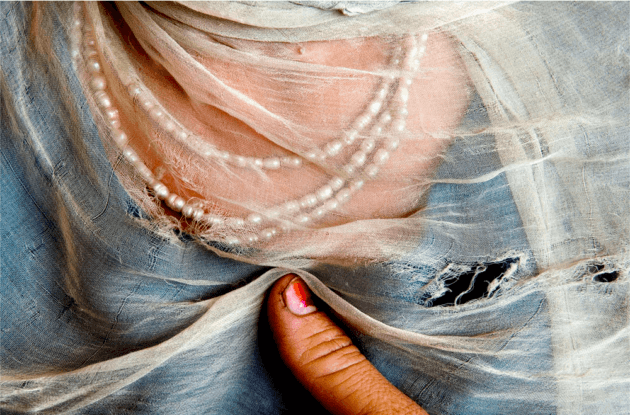
In 2004, American novelist Masha Hamilton first visited Afghanistan, witnessing the courage of Afghan women who sought to begin careers, get educations and participate in public life. However, in November of 2008, when she returned, life in Afghanistan had become more difficult, and opportunities for women were increasingly scarce. She established the Afghan Women’s Writing Project to create a forum for both women’s education and their voices. She wanted the world to hear them directly and not in the words of male relatives or the media. Through the project, Afghan women work online with one of approximately fifty volunteer teachers in the US. The teachers, also women and authors, guide their students, helping them develop their ideas and stories.
Over the last two months in Afghanistan, I have personally taught several of the young women involved in this project and have heard from them how much they are learning. Masha has expressed that it is her perception that the program becomes a “lifeline” for these women, and the writers with whom I spoke echoed this–how important it is to know that people are listening to them, that their stories have value.
Below are four personal essays and two poems by AWWP writers.
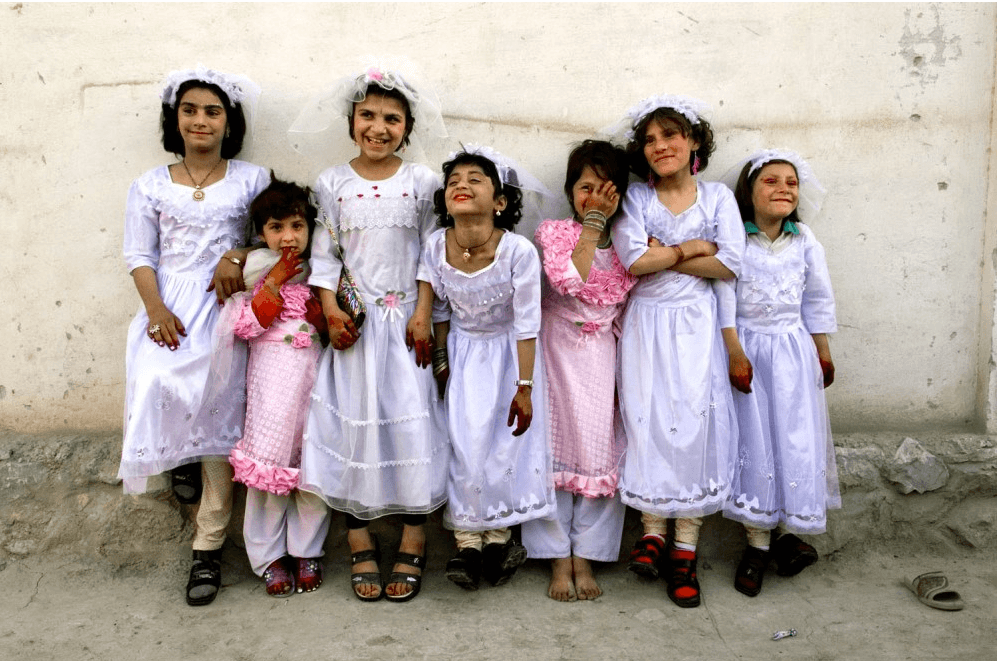
I can’t forget that day when we didn’t have anything to eat in our house. My father was jobless and my mother was working outside in rich people’s houses to earn money. My mother tried to prevent me from feeling hunger. I know it was difficult for her not to be able to feed her child properly.
In my childhood, I was very sensitive to smells. We had neighbors who were rich and every night they had a party and cooked delicious food. One night, they cooked rice and the smell made me so hungry. I wanted to eat that rice. I asked my mother why we didn’t cook rice? Why can’t we smell this from our house? My mother tried to ignore me, and she took me away from the room filled with the smell of rice and into bed with her. My mother’s love, her natural smell, was stronger than the smell of rice. She didn’t use any special perfume, but she naturally smelled like a flower that grows in the spring. I felt comfortable when she hugged me, and I forgot my hungriness. When I would start crying, only my mother was able to calm me.
Despite our living in one of the poorest areas, my father and mother tried their best to gives us a good life, and we had a happy family.
But my mother got sick. She and the doctor said she should sleep alone. I was used to sleeping with her. I cried a lot. Day by day, her illness became worse. We didn’t have enough money to take her to another country for treatment. We just waited to see what Allah wanted, but I wanted to save her. Without her, I thought my life would be finished.
After several months, my mother’s illness became worse, and the doctors said she wouldn’t live anymore. When I heard this, I lost myself. I was just 13. I had a mother and a father, no sister or brother. I had one mother. I couldn’t convince myself that after a few days my mother would die and I would be alone.
My mother didn’t say anything when she was dying. She just gave me a little money and then she spoke very slowly and said, “Give this money to your father to buy rice, and tell him to cook it for you and say you really want the smell of rice.”
I could see that she was taking care of me even at the end of her life.
Eventually she died in front of my eyes. I didn’t know the difference between day and night. How could I spend days and nights without my mother who fed me and loved me and talked with me? When I enter her room and sit on her bed, I feel as if I can smell her. She is with me and my heart beats fast. I imagine her when I smell her clothes, the veil that she wore. I know she is not with me, but her soul is.
I love my job. I know it can help bring changes in women’s living conditions in my province. But there are obstacles.
Recently I received a death threat from the Taliban. I was on my way to work when a neighbor called out to me and said, “You must return home because we found a letter from the Taliban threatening you, and you must quit your job right now.”
“I want to see that letter,” I told him.
He said, “That is fine,” and gave me the letter, which said the Taliban in my province were planning to kidnap me, my sister and my father and then kill us.
As my family was at risk, they decided to move to another city. They were not happy about leaving me alone and asked me to come with them, but I thought about my responsibilities for the women in my province, so I remained behind for my job. I am not living with my family any longer. I only go out covered in a burqa. I am still working.
My early life began like this: when I was seven years old, my mother got sick, so I began to take care of our home, washing clothes and dishes, cooking. One night during the Taliban regime, our family left Afghanistan at midnight and headed to Iran. It was cold and dark. We were traveling in a car and the roads were unpaved and dusty. Finally we reached the Iranian border. We found a place to stay for the night, and in the morning we crossed a river and then took another car to Zabol in Iran.
In Iran, we started another life with many difficulties. My father was working and my mother and I began to work also. We shelled nuts for a shopkeeper who paid us about 1000 toman so we had enough to buy bread. I have many bad memories from that time. I remember when I was eight, I went to bakery to buy bread. I was the first in line, but the baker did not give me bread because I was Afghan. I waited until 10 p.m. It got darker and darker and I was afraid, as our house was very far. Finally I got the bread and was running home, crying. When I arrived, my mother was waiting at the gate, also very worried.
At that time I wanted to study, so I tried to enroll in official Iranian schools, but as I was Afghan, I was not allowed. I did find a literacy class and started my primary education there until sixth grade. That meant when we returned to Afghanistan after the fall of the Taliban, I could go directly to school to learn subjects, not simply to learn to read.
The first day of school in Afghanistan, I was so glad. I felt I was floating in the sky. It was a sunny day. I was with many Afghan girls in the yard of school, waiting for our teachers. It was 2001 and I was in the sixth grade. We did not have chairs, desks, books, or a blackboard and our floor was dirt, since everything was lost during the Taliban regime. I was an intelligent student and the teachers loved me. I never missed a day even though my mother was sick. I got up early to clean the house, make breakfast and cook lunch.
In 2004, I faced another tragedy. My family forced me to marry an uneducated, older man. I was sixteen. The man was my father’s relative. From the beginning, every day, he beat me. He wanted to prevent me from going to school; he never allowed me to see my friends and relatives. I tolerated everything because I was an Afghan and it would shame my family if I complained about my husband.
After three months, he sent me to my father’s home and left me. When I was seventeen, he came and divorced me. I was pregnant. I was happy that this cruel man would leave me alone, but I was worried about my child. After the divorce, people started to say bad things about me because they did not accept a divorced woman. My child was born in a hospital, but since then I have never seen him. He was a boy and my husband’s family took him.
There was no way forward for me except to continue my education. I finished my pre-university classes and wanted to go to a university. But my mother was again sick and required an operation that cost the equivalent of eight-thousand dollars. So I worked for three years to help raise this money. My mother had the operation and is now fine. I feel so happy to see her healthy after 17 years.
As for my own future, I don’t know what it will be. I know I want a university degree someday, and I know I will keep trying.
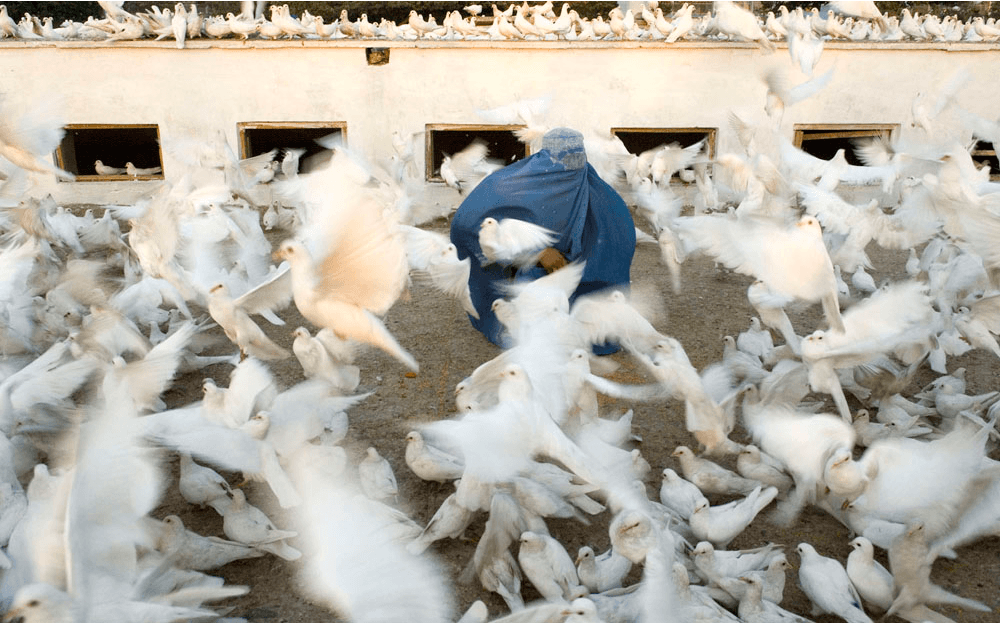
It was a cold winter day when we arrived. The city was still, the roads nicely asphalted and lined. We walked towards the police building where we had to submit our request. Going to the police frightened me. I had a painful picture in my mind. I had the feeling I was going to jail, or that they may treat us like criminals. In my confused mind, I likened those organized streets to Kabul’s dusty, chaotic roads.
When we entered the building, despite my fears, the policemen were nice and patient towards us. A nurse came to me, smiling, and said with a peaceful voice, “May I help you?” She took my three-month-old baby in her arms. She guided me to a warm room designed for children. She gave my four-year-old daughter cookies and asked, “What is your name, gorgeous?” My daughter was looking at the nurse with a surprised expression and shook her head. I said, “Nilab, she is asking your name. Please tell her what is your name.” My daughter answered in trembling voice, “Nilab.”
“Beautiful, beautiful name,” the nurse said, and asked me if my daughter wanted to play with toys. Again, Nilab shook her head. She didn’t want to play; she was not used to playing with toys. The nurse turned to my baby and said softly, “Oh dear, you are tired, you need a bath.” She began giving my baby a bath. She changed her clothes and diaper. While she was doing this, I was looking at all those items for kids: a small bath, soft beds, toys for different ages. On one wall hung kids’ drawings. One of those drawings was horrible. It showed fire, demolished houses, injured people, a lady’s dead body and a crying child. I was thinking about children growing up in war. Do these children ever have toys? Do they have baths with warm water? Suddenly I wanted to talk to the European children and tell them, “You are lucky. You are in safe hands. You should be thankful for your governments.”
I was struggling with my thoughts when that nice voice interrupted me: “What is her name?” I asked, “Whose name?” “Your daughter’s. She is amazing. She has got sharp eyes.” “Laila. Her name is Laila.” “Beautiful, beautiful name,” the nurse said and added, “While the baby is sleeping, you can leave her here.” Since my baby was asleep, I asked the nurse if she could look after her. She said, “Of course, that is why we are here.”
She guided us to the waiting room. I wanted to take a hot shower and rest, but it was not possible. They had just two big sleeping rooms for men and women. In the waiting room, the chairs were uncomfortable and small. After two days, my whole body was stiff and in pain.
When I entered the waiting room, everyone stared as if I had bad news for them. I saw my husband’s anxious look. “Where have you been?” he asked. “In child services. Why? What is wrong?” “I thought they called you for an interview,” he said. But it was not that easy. When we spoke to others, we learned everyone had been waiting for their interviews for more than 48 hours. My God, I thought, how can I spend two days in this waiting room on these plastic chairs?
They didn’t serve warm meals, just a bottle of cold milk, an apple, two slices of bread and a piece of cheese. We were not allowed to go outside the compound, so we couldn’t buy our own food. I hate milk products and so does my daughter. When I shared the problem with the guards, they said, “Sorry, we can’t do anything.” So we didn’t eat proper food for more than 48 hours. I felt cold from the inside. By the second day, my daughter was speechless. She was watching me but never said anything, as if she understood the situation. She didn’t mention that she wanted to eat.
On the second day, they called us for an interview. They asked odd questions like, “Why did you leave your country? Couldn’t you live in Pakistan?” I was mad. I said, “Don’t you know what is going on in my country and who is responsible? Haven’t you read Geneva’s agreements for refugees? First you have to read them, and then ask us questions like this. No one will never ever leave their motherland and chose another country. It is like replacing your mother with another. No one will prefer another mother, even if this mother is kinder, nicer and richer than your own. Believe me, sir, we are not here because your country is nice, modern and rich. I love my destroyed country more than Europe. You should know, sir, who is responsible for destroying my motherland, who killed our parents, our youngsters.”
The interrogator listened with unfeeling eyes. Then he said, “These questions are part of our investigation. You have to answer them.”
So I said, “No, sir, I couldn’t live in Pakistan. It is not safe.”
There were many other odd questions and odd answers. Then they took our fingerprints and gave us ID cards. On the third day, we were in the waiting room when a policeman entered, called our names and said, “Follow me.”
God, I wondered, what will be next?
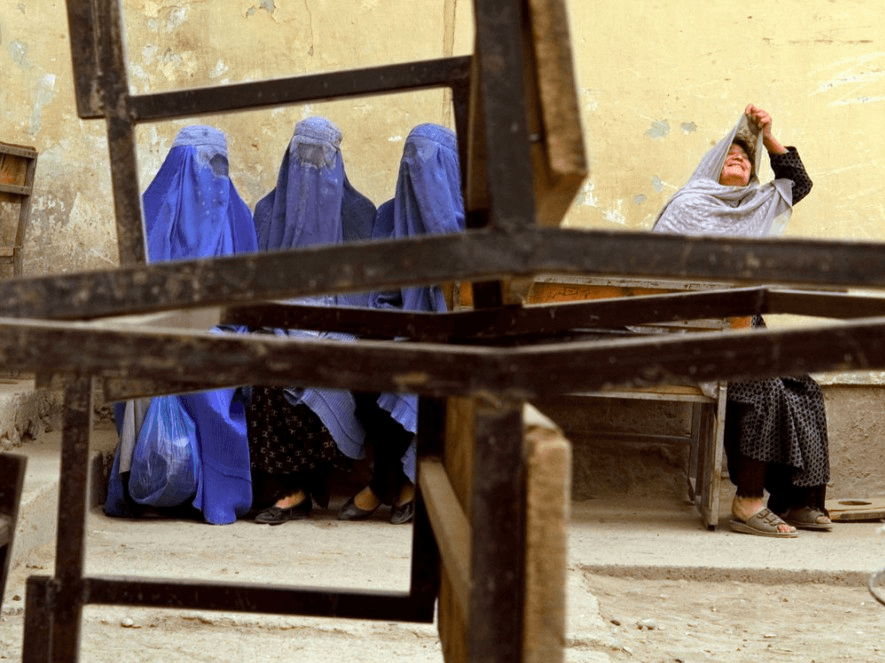
We had a kind and lovely family. We were not so rich in money, but rich in love and kindness, in happiness and sympathy, more like friends than family members. My father was an engineer, I was one of three brothers and we had two sisters.
We were living in Mazar in a small house with one room, a bathroom, a kitchen and a yard. My father worked in a construction company. He was working hard and his goal was to raise us with educations.
I was in fourth class when there was a change in the government. Everyone was afraid–what would happen? Then they announced on the radio that girls could not go to school; only boys could.
My youngest sister, Malia, was eight and in second class, and my other sister, Noria, was nine and in third class. We were sad because they couldn’t go to school. But after a week, I told my father I was going to school even though I was sorry my sisters could not. My father said he was thinking about my sisters–what should they do? I told him I was sad too. “But still, tomorrow I am going to school. I can’t wait, I can’t wait.”
My father was thinking; he didn’t reply. It was 2:00 p.m. and I was tired. I went to my room and lay down and after a few minutes I fell asleep. I don’t remember exactly how long I slept, but my mom woke me up. She was worried and told me, “Ahmed, your father went to the barber.”
The barber’s shop was at the beginning of our street, and he was my father’s friend, so I told my mother, “It doesn’t matter, he always goes there.”
“Yes, yes, I know, but this time your father took Noria and Malia!”
I was surprised. When my father returned, he told Mom, “Life is so dangerous, so hard. Taliban were at the barber’s shop, warning him he couldn’t cut people’s hair and beards. If he does, they will put him in jail.”
My two sisters were silent. They wore veils. My father asked my mom to bring him the scissors. She did and Dad called Noria first, “Come, my golden-hair angel.” Noria and Malia both had long hair and my dad loved their hair, especially Noria’s hair.
Now, she sat in front of him. He had the scissors. His hands were shaking. He combed her hair and then he started cutting it. He cut it like a boy’s, like mine, short and straight.
I was shocked. I thought, “Dad is mad, or something is wrong with his mind,” but I didn’t say anything. Mom and I just stood watching. Then Dad called Malia and cut her hair too. They both looked very ugly, very poor.
Then Dad told Mom, “Bring all of Ahmed’s old clothes.” Mom looked like she was going to cry for her daughters’ hair. She opened an old box, but it held only some of my sister’s old clothes, not mine. Our next-door neighbor had a son my age, so Mom borrowed his old clothes for my sisters. Then Dad told me, “Come stand next to your sisters.” I stood, and Mom and Dad looked at us.
The next day Dad didn’t go to work. He took me and my sisters to school. My sisters looked like simple school boys. He told me to watch out for them.
For six months, we went to school every day, but after a while I began to get very afraid. One day, Noria didn’t go to school. She stayed home because Mom was sick. Malia went to school with me, but unfortunately the teacher was absent, and boys were fighting in class. One threw an eraser at the window, and broken glass fell and cut Malia’s leg. She cried and said that she wanted me, her brother, to come from another class but no one cared. The principal took her to the clinic, and while checking her, the doctor told him she was a girl.
“How is that possible?” the principal asked and ordered him to stop treating her.
After school, I waited for her but when she didn’t come from her class, I went home and told my mother. She cried. We thought someone had kidnapped her.
After Dad came from work, the principal arrived holding Malia by the arm and accompanied by four Talib police. Her face was white and she was crying silently. Her clothes were bloody. The principal didn’t say anything. My father told them, “Welcome.”
The Talib commander hit him, and then all of the men started to hit him with big wooden sticks and cables and wires. One Talib hit Dad’s nose and broke it, and blood was coming from his nose and mouth. I tried to rescue him but I couldn’t; I was very small. Before they left, the Talib warned my dad, “If you do anything bad again, we will put you in jail or kill you.”
Dad was in the hospital for two months. During that time, I went to school alone and worked for a tailor. Noria and Malia stayed home. When Dad got out of the hospital, he told us he wanted to quit his job and begin working as a teacher.
Yes, he wanted to teach us at home, and he invited the neighbors to come and study. Half of the room we were living in became a classroom. Dad painted part of a wall black and it was our blackboard. Girls came to our house from morning until evening. Dad taught all school subjects. He never seemed to get tired.
One day, the family of one of Dad’s student’s was moving from our street. She came to say goodbye and promised him she would try to visit in the future. Dad talked with her until prayer time. A Talib carrying a cable was in the street to call people to prayer, and he saw the student leave our house. She said to my father, “Goodbye, teacher,” and the Talib heard. He pushed at the door. Dad thought it was his student returning, so he opened the door. Talib didn’t hit my father with the cable. He just told him, “Come with me.”
I saw my father with them in the car and then the car drove away. Mom was at home, and we all were crying. Neighbors came and told us, “He will be back, be patient.” We waited until evening. It was dark. Mom went to my uncle’s house to tell him what had happened. My uncle began investigating with his sons. The next day, he went to all the Talib police stations but no one had information. We checked all the jails and prisons, but he was not there. I kept asking myself: “What did they do with Dad? Did they kill him? If so, where is his body? If not, then where is he?”
What was his sin? It was that he was teaching girls. He quit his job because he didn’t want his daughters to be illiterate. His second sin was that it was prayer time, and he prayed at home. He prayed for Allah, not for the Taliban.
Days and nights passed with no word from Dad. We had money problems and other worries, but still at night I taught Malia and Noria. I wrote on the blackboard of our wall. I thought of myself as my father.
After the Taliban regime fell, we were hopeful that Dad would be back, but he never returned. Malia graduated from school last year and attended the faculty of journalism in Mazar. Noria is still in the 12th class. She wants to be an engineer. Her golden brown hair has grown back, and it reminds me of how much my father loved it.
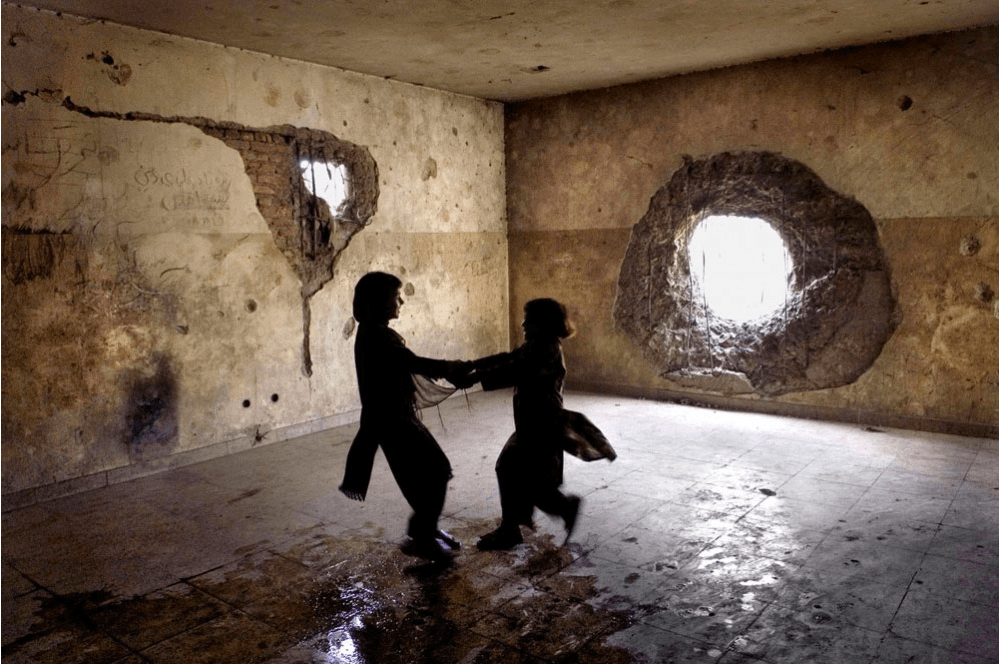
The arrival of winter reminds me of those rainy days when I was going to school
Sleepless from the cold nights and the tup-tup sound of raindrops leaking from the roof
Cold air through the broken windows waking me up from my warm bed
Each morning my mother making me hot tea and naan with her kind, soft hands
Walking in my burqa through the long, narrow streets of our neighborhood
Holding my blowing burqa tightly to cover my school uniform from unwanted views
Folding it around myself to warm up my cold hands and red running nose
Bundling up my white pants and burqa to jump over puddles across a broken bridge
Cheering in my heart like an Olympic champion for succeeding in crossing the broken bridge
My burqa flying in the wind like small birds learning to fly in the sky
Slipping and getting my school uniform and shoes muddy before reaching the bus station
Pleased to arrive at school, like a lost bird returning to the nest after a long voyage
Being punished by the school’s monitors for being late and wearing a messy uniform
Those freezing classrooms with hollow windows and doors giving me flu and fever
Finding raindrops on each page of my books, like the shabnam (dew drops) Spring brings to leaves and flowers
The cracked benches like rocks freezing in the mountain
Snuggling with my friends and classmates to warm each other against the cold
Praying for sunshine to melt our frozen muscles
The arrival of winter giving us a lesson on how to be strong against hardship
The end of winter giving us a blossom of hope for Spring
Navy blue, long and baggy
Top and bottom with different designs of flowers
Hanging outside the shop along with other white and green ones
Swinging in the cold wind of Kabul winter.
Swinging tiredly and wondering about the woman who would own it
Maybe the one who would wear it unwillingly
Cursing herself for being born a woman
Complaining about her inability to see or move freely.
Swinging right and left, the burqa remained wondering
Whose face would it hide? Whose identity would it take?

DENI BÉCHARD was born in British Columbia to French Canadian and American parents and grew up throughout Canada and the United States. His first novel, Vandal Love, (2006, Doubleday Canada) has been published in French and Arabic, and won the 2007 Commonwealth Writers’ Prize. He has done freelance reporting from Northern Iraq as well as from Afghanistan. In 2012 and 2013, Milkweed Editions will publish “Cures for Hunger,” his memoir about growing up with his father who was a bank robber, and “Empty Hands, Open Arms,” a book about conservationism in the Congo.
Lana Šlezic is an award-winning Canadian photographer. She spent two years recording the lives of Afghan women girls and women, who in society are the most vulnerable to violence, abuse,and poverty. Her work resulted in the acclaimed book, “Forsaken.”